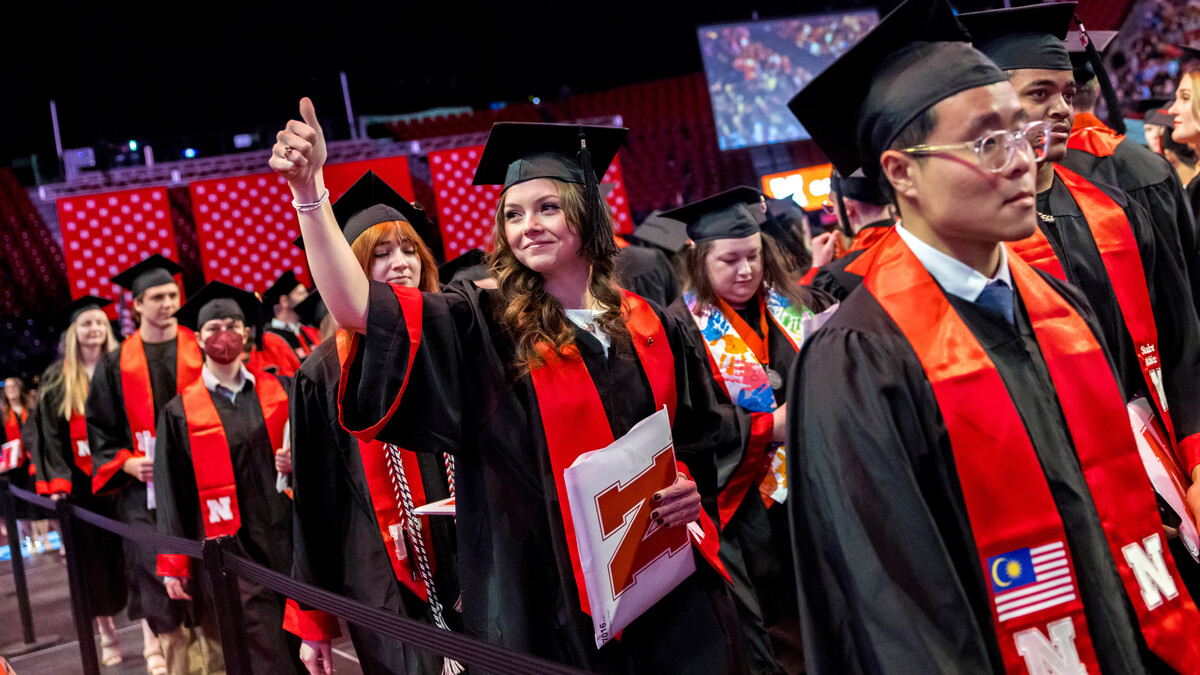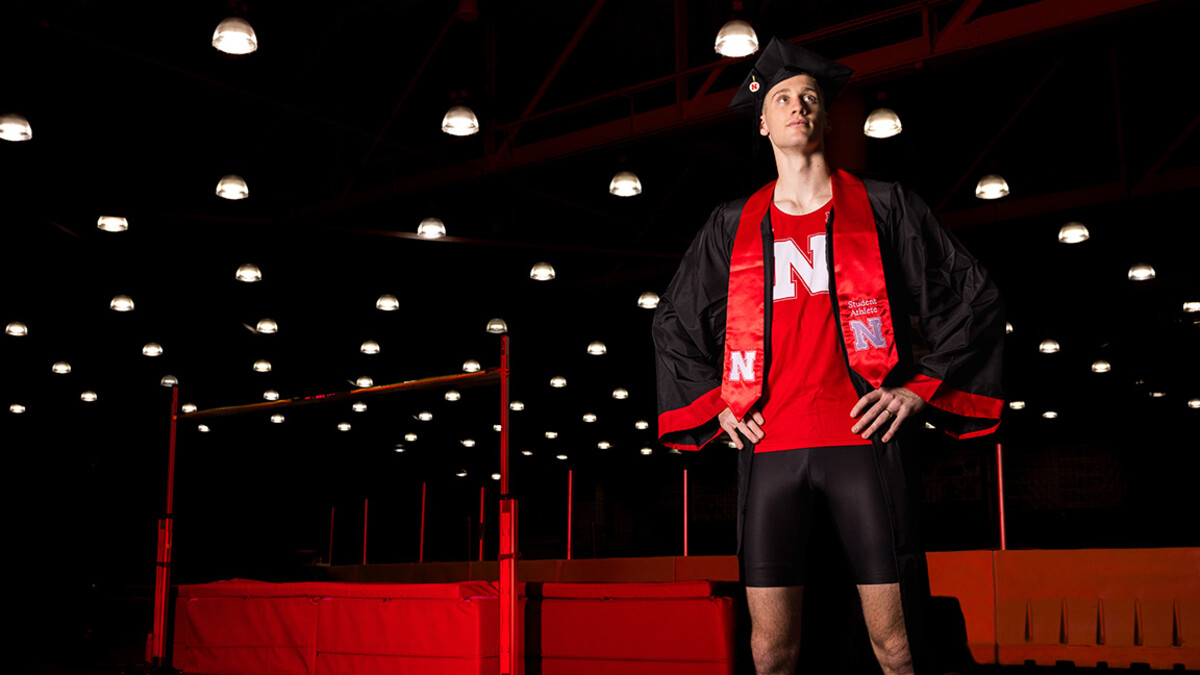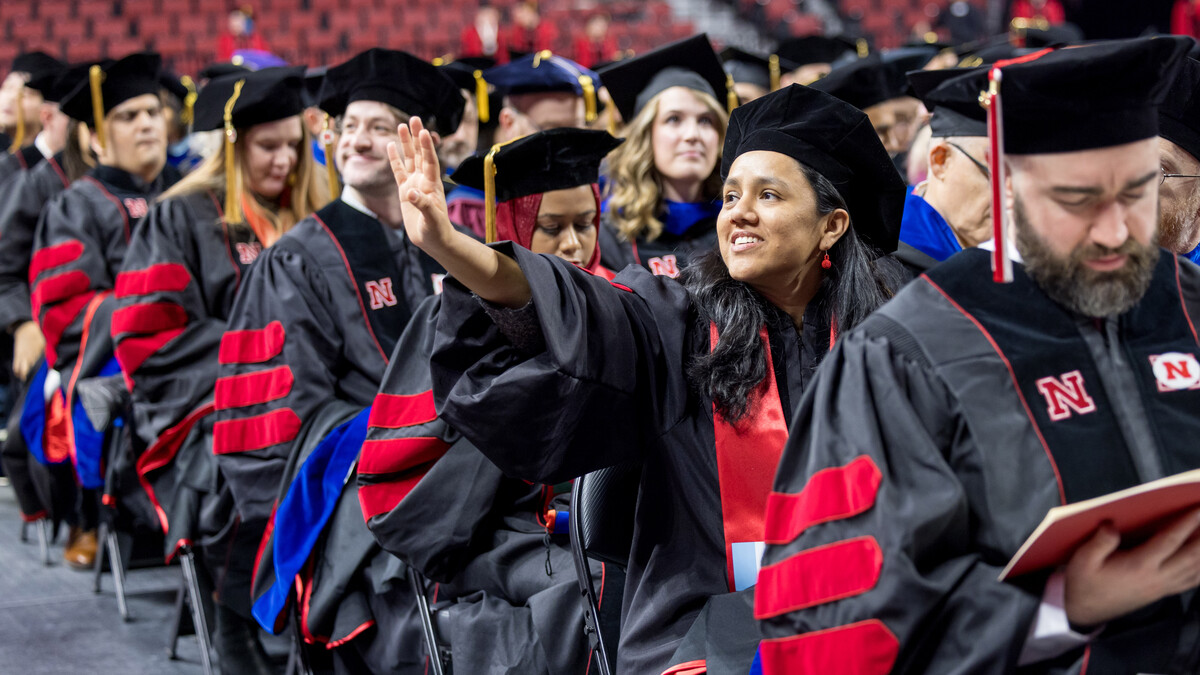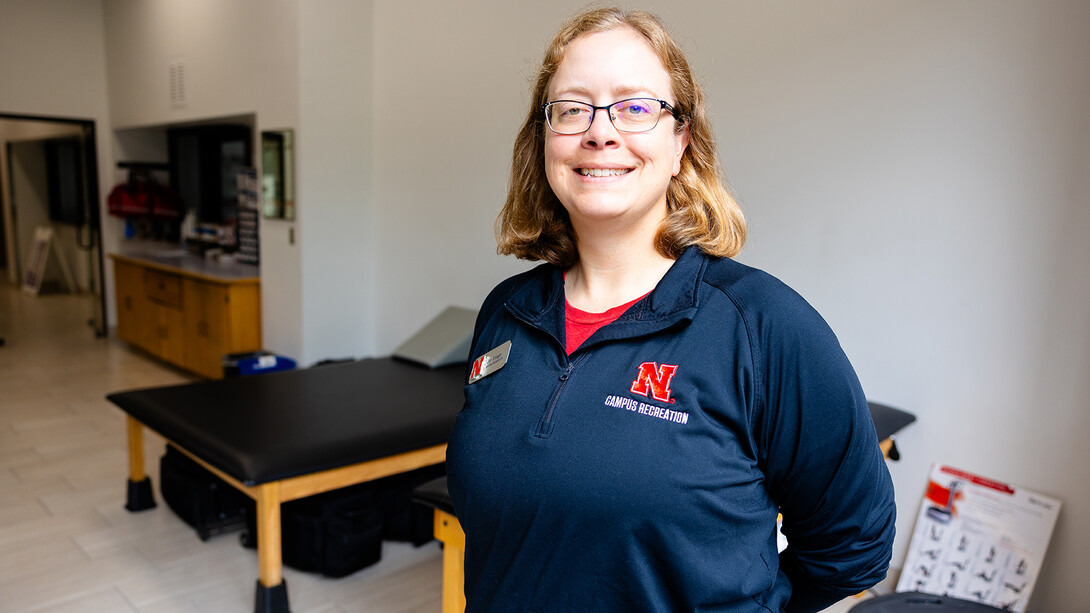
From treating sprained ankles to guiding students through concussion recovery, Nebraska's Jen Krueger has seen it all. At the heart of Campus Recreation’s injury prevention team, she brings medical expertise and human warmth to aid Huskers in some of their more vulnerable moments.
“Athletic training is a lot of relationship building while we’re treating patients and making sure they’re on their way to recovery,” said Krueger, senior coordinator for injury prevention and and care in Campus Recreation.

Krueger and student staff in her office help visitors to campus recreation facilities with issues ranging from cuts to sprained ankles to concussion checks. She loves the opportunity work with a range of populations, including students, kids from the community and even retired faculty and staff.
“We get the people who are on their first day of a fitness journey that might have questions about stretching, and we also get our high-risk sport clubs like hockey and rugby and people playing intramurals and summer camp kids,” Krueger said. “We get to see all age ranges and people from all over, so it’s just a really fun place to work.”
Krueger and those in the injury prevention and care are typically the “first responders” for medical issues that arise during recreation activities. They can be on-site to evaluate someone immediately, referring people to doctors when needed. Some of the most common injuries are minor lacerations and knee and ankle injuries.
“Every semester, anecdotally, has its injury,” Krueger said. “Sometimes it’s ankles. Sometimes it’s pinky dislocations.”
The presence of athletic training staff, both professionals and IPC student workers, within campus recreation facilities means someone is able to respond more quickly when a visitor needs medical attention. All frontline student staff have first aid and CPR certifications, and in the event someone has a more serious injury or problem, they can step in until emergency services arrive.
“There’s somebody there that can provide that immediate care, and I think that puts people at ease,” Krueger said.
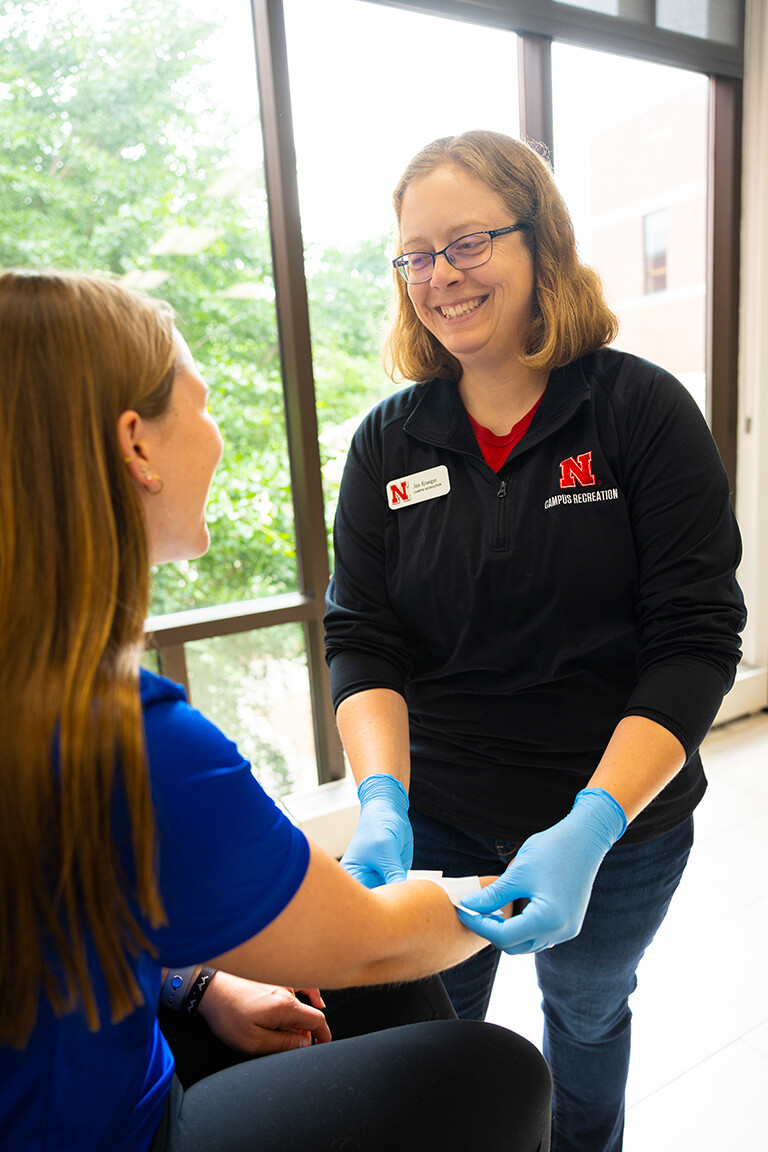
Krueger became interested in the medical field at a young age but settled on athletic training. She was a manager for her high school’s basketball team and worked at the Campus Recreation Center when she was an undergraduate student at Nebraska. Since becoming a full-time staff member 14 years ago, she’s worked alongside counselors at Husker Kids Camp who were campers when she was a counselor. Her own daughter, who now plays three club sports as a teenager, attended the camp too.
Krueger now supervises student staff in the injury prevention and care office. She said her own experience as a student worker helps her understand what they might be feeling, and one of the best parts of the job is watching these students develop their skills and knowledge during their time in college.
“You see that snapshot of when they’re freshmen and when they’re seniors and their growth,” Krueger said. “They come in and they’re a little unsure of themselves and you see them build up self-confidence in their skills.”
Krueger also teaches First Aid and Care of the Athlete in the College of Education and Human Sciences, preparing future coaches for basic injuries commonly seen in sports, and a non-credit course on athletic training basics. In both of these roles, she said she enjoys helping to guide people as they progress.
“It’s fun to watch them light up as they’re learning new things,” she said.
Along with the other staff in her office, Krueger gets to know Campus Recreation regulars like sport club athletes. The office does concussion testing for those students, and in the event someone does sustain a concussion, Krueger finds it fulfilling to support them through their recovery. She said head injuries are some of the worst injuries she sees, so it’s a relief to see that healing.
“Seeing them when they’re not feeling well and then as they progressively get better, I think that’s really rewarding,” she said.
Forming those connections a vital part of the job, Krueger said. Often people find themselves in her office in scary or tense moments, and Krueger recognizes the need to create a welcoming and comforting environment for their safety.
“Usually when somebody comes in here, it’s one of their worst days,” Krueger said. “They’re scared; they might not know what’s going on. Maybe it’s an international student that has a language barrier. We want to make sure they feel comfortable, and they feel safe…Getting rapport puts them in a better spot; knowing they can come back and ask questions makes them feel more comforted and at peace. That takes some of the stress of the injury away.”
______________________________________________
Editor’s Note — “One of U” is a Nebraska Today series that shines a light on the inspiring work and unwavering dedication of staff members at the University of Nebraska–Lincoln. These stories honor those who go above and beyond to support student success and strengthen our Husker community. To nominate someone for the series, please contact Troy Fedderson at tfedderson2@unl.edu.



